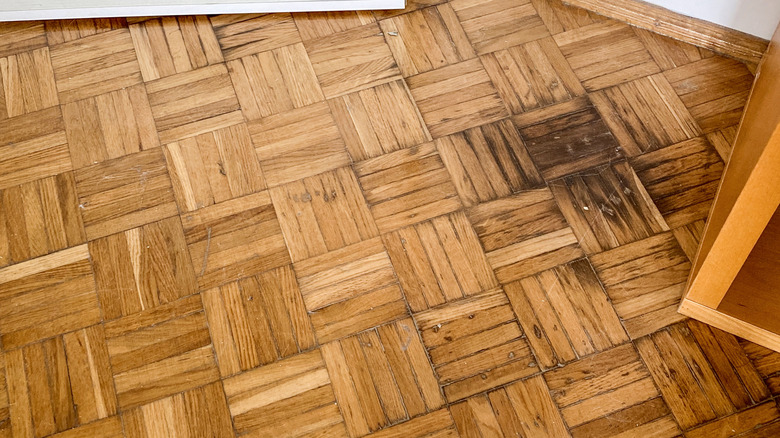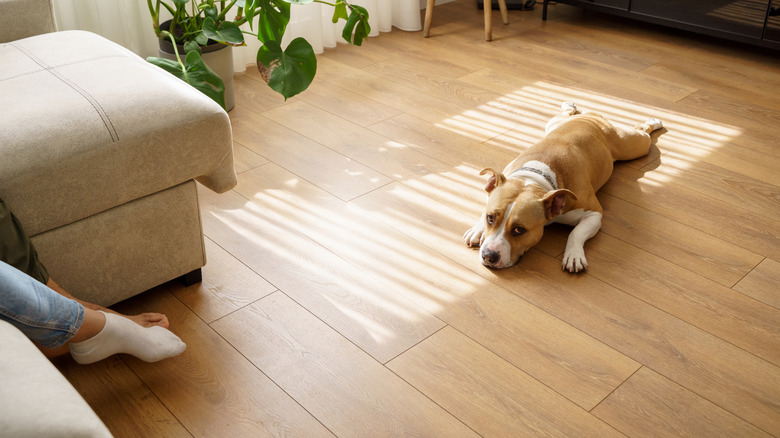Keep Your Hardwood Floors Safe With The Best Moisture Barrier To Shield Them
Although loved for their timeless aesthetics, hardwood floors have several enemies. These include direct sunlight, stiletto heels, and, worst of all, moisture. From cupping, signified by the edges pushing higher than the center, to mold growth, to splitting — moisture can ruin your hardwood floor in several ways. You can find yourself cursing your flooring decision or hoping you had chosen something else. Did you know, however, that using a moisture barrier can keep your hardwood floor in stellar shape? While they are not 100% effective — they can save you tons of cash compared to expensive floor repairs.
Moisture barriers are categorized as Class I, II, or III, depending on specified permeability ratings — with Class I being the most impermeable. The rest follow in that order. Intuitively, a Class I moisture barrier may look like the best option to shield a hardwood floor from moisture damage. However, choosing the best class of moisture barrier is not as straightforward as homeowners would wish. Several factors come into play, including subfloor material, type of hardwood, and local climate conditions. Not just that, you should also pay attention to the flooring manufacturer's recommendations since these often come with specific moisture barrier requirements.
Tips to pick the best moisture barrier for your hardwood floor
If you're looking for a moisture barrier that's almost completely impermeable and, hence, suitable for cold or humid areas, consider installing a Class I moisture barrier. These often come as polyethylene sheets or rubber membranes — and boast a permeability rating of 0.1 perms or less. Class II permeability ratings are typically between 0.1 and 1.0 perms, with Class III permeability ratings ranging between 1 and 10 perms. If your hardwood floor is over a concrete subfloor, you may want to aim for maximum impermeability, especially because concrete is known to absorb ground moisture.
The other major factor to consider is whether the material that your moisture barrier is made of is compatible with the materials it will inevitably touch. Although the process is very slow, certain plastic barriers can break down if they come into contact with specific chemicals in concrete. Also, check your local building codes, and if you need clarification, ask a professional familiar with your area's building requirements. This is crucial because different regions have different moisture barrier installation rules. Finally, depending on thickness, moisture barriers can cost between $0.30 and $0.50 per square foot, and this will go much higher if you include installation costs.

